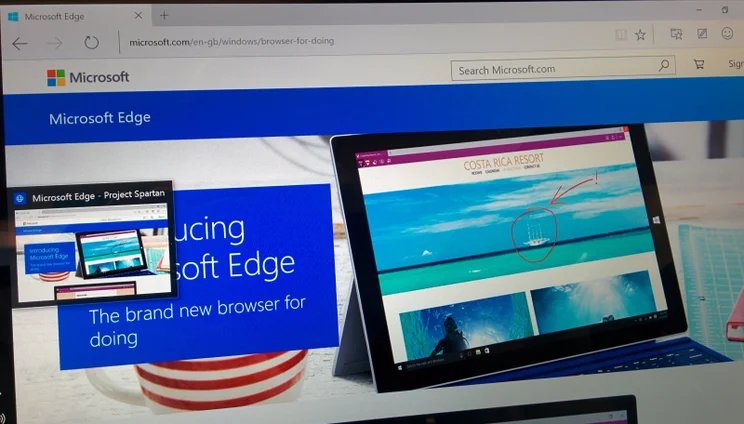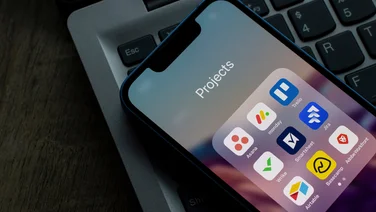To help us provide you with free impartial advice, we may earn a commission if you buy through links on our site. Learn more

Windows 10 has many new fancy features, you can read all about them and get them yourself by reading our Windows 10 roundup, but as with many operating systems it will most often be used to simply launch a web browser. Thankfully, Microsoft has a brand new browser for its new operating system – called ‘Project Spartan’ in development (a reference to the company’s Halo games), it’s been officially dubbed Microsoft Edge.
All the best Windows 10 features and how to use them
The new app will be the default browser for PCs, laptops, tablets and smartphones running Windows 10. Google has made a big enough success of Chrome that no-one is worried about a bundled browser being monopolistic. The new browser will integrate with a lot of Microsoft’s other services, such as the Cortana personal assistant (yes, another Halo reference). It has also removed support for a lot of outdated web standards, such as ActiveX, so it should be slimmer and faster. That’s no bad thing, as Internet Explorer has been somewhat bogged down by support for such old standards.
We ran some benchmarks on the release versions of Edge and Internet Explorer plus their big rival Chrome, in order to see which was quickest. The results as you can see say more about how hard it is to test browsers than they do about the browsers themselves.
| Browser | Browsermark | Peacekeeper | Sunspider 1.0.2 | Octane 2.0 |
| Microsoft Edge | 2027 | 1433 (5 of 7) | 200ms | 13,798 |
| Chrome | 3956 | 2537 (7 of 7) | 355ms | 16,022 |
| Internet Explorer | 2159 | 1541 (5 of 7) | 195ms | 8,036 |
Chrome is generally quicker than its Microsoft rivals, which is a big change from only a few weeks ago when we originally ran the benchmarks on a pre-release version of Windows 10, where they were more even across the tests. Edge performs reasonably but doesn’t really make a rise above Internet Explorer’s speeds. Of course, these are just benchmarks but even then we’d expect Microsoft’s newer, leaner browser to perform better than this.
We also did some ad-hoc testing on system resource usage. We did this by opening up five tabs in each browser with the same sites in each. We used a few of the big UK news homepages: BBC news, The Daily Mail, The Guardian and The Telegraph, plus Expert Reviews, of course. We then used the Task Manager to total up the memory usage of all the processes used and the memory footprint.
| Memory usage | CPU usage | |
| Microsoft Edge | 758MB | 18% |
| Chrome | 443.9MB | 13% |
| Internet Explorer | 528MB | 15% |
We were surprised to find that the Edge browser was the hungriest of the three tested. It used 758MB of memory, compared to around 500MB for the other two browsers, and its CPU usage was also higher at 22%, versus the 13% and 15% of Chrome and IE respectively. We ran the test again with different sites and got similar results.
How to import Chrome, Firefox and Internet Explorer bookmarks into Microsoft Edge web browser
All the tests were done on a Dell XPS 11 laptop with an Intel Core i5 processor, SSD storage and 4GB of RAM. It’s not the most powerful laptop by a long stretch, but it’s exactly the kind of slender hybrid device that Microsoft is targeting with Windows 10, and should have plenty enough power to run a few browser tabs.
It’s early days obviously, with Windows 10 and Edge only just out, but we’re curious as to why the sleek new browser was so memory hungry. It’s not going to be a big problem on laptops like ours, but running on tablets and phones as well, the browser needs to maintain a much smaller presence than this.






